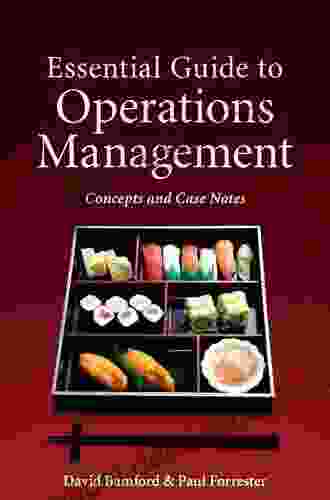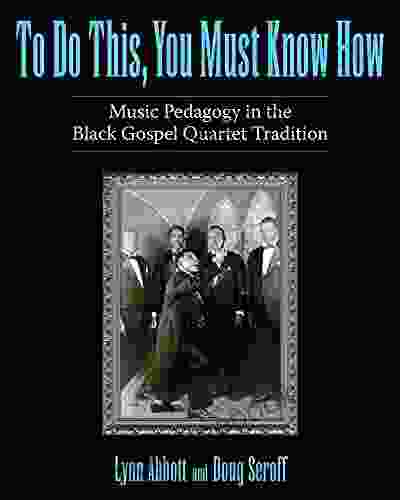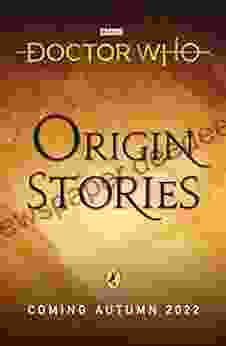Poetics of Music in the Form of Six Lessons: The Charles Eliot Norton Lectures 30

Igor Stravinsky's Poetics of Music in the Form of Six Lessons is a seminal work on the nature of music. Stravinsky explores the elements of music, such as rhythm, melody, and harmony, and discusses how they can be used to create expressive and meaningful works. The lectures are a valuable resource for musicians and music lovers alike.
The Elements of Music
In the first lesson, Stravinsky discusses the three basic elements of music: rhythm, melody, and harmony. He defines rhythm as "the organization of time," melody as "the organization of pitch," and harmony as "the organization of chords." Stravinsky argues that these three elements are essential to music, and that they can be used in a variety of ways to create different effects.
4.6 out of 5
| Language | : | English |
| File size | : | 570 KB |
| Text-to-Speech | : | Enabled |
| Enhanced typesetting | : | Enabled |
| Word Wise | : | Enabled |
| Print length | : | 160 pages |
| Screen Reader | : | Supported |
Rhythm
In the second lesson, Stravinsky focuses on rhythm. He discusses the different types of rhythm, such as simple, compound, and polyrhythmic, and explains how they can be used to create different moods and effects. Stravinsky also discusses the importance of tempo and dynamics in creating rhythm.
Melody
In the third lesson, Stravinsky discusses melody. He defines melody as "a succession of single notes that form a recognizable pattern." Stravinsky explains the different types of melody, such as scalar, conjunct, and disjunct, and discusses how they can be used to create different effects. Stravinsky also discusses the importance of phrasing and articulation in creating melody.
Harmony
In the fourth lesson, Stravinsky discusses harmony. He defines harmony as "the combination of two or more notes played simultaneously." Stravinsky explains the different types of chords, such as major, minor, and seventh chords, and discusses how they can be used to create different effects. Stravinsky also discusses the importance of voice leading and chord progressions in creating harmony.
Form
In the fifth lesson, Stravinsky discusses form. He defines form as "the overall structure of a musical work." Stravinsky explains the different types of form, such as binary, ternary, and rondo, and discusses how they can be used to create different effects. Stravinsky also discusses the importance of development and recapitulation in creating form.
Expression
In the sixth and final lesson, Stravinsky discusses expression. He defines expression as "the communication of emotion through music." Stravinsky explains the different ways that music can be used to express emotions, such as through the use of melody, harmony, and rhythm. Stravinsky also discusses the importance of interpretation in creating expression.
Igor Stravinsky's Poetics of Music in the Form of Six Lessons is a valuable resource for musicians and music lovers alike. Stravinsky's insights into the nature of music are essential to understanding how music works and how it can be used to create expressive and meaningful works.
4.6 out of 5
| Language | : | English |
| File size | : | 570 KB |
| Text-to-Speech | : | Enabled |
| Enhanced typesetting | : | Enabled |
| Word Wise | : | Enabled |
| Print length | : | 160 pages |
| Screen Reader | : | Supported |
Do you want to contribute by writing guest posts on this blog?
Please contact us and send us a resume of previous articles that you have written.
 Novel
Novel Chapter
Chapter Text
Text Reader
Reader Library
Library Paperback
Paperback Magazine
Magazine Newspaper
Newspaper Sentence
Sentence Shelf
Shelf Synopsis
Synopsis Footnote
Footnote Scroll
Scroll Codex
Codex Tome
Tome Bestseller
Bestseller Classics
Classics Library card
Library card Narrative
Narrative Memoir
Memoir Reference
Reference Character
Character Catalog
Catalog Card Catalog
Card Catalog Archives
Archives Study
Study Research
Research Scholarly
Scholarly Lending
Lending Academic
Academic Interlibrary
Interlibrary Literacy
Literacy Study Group
Study Group Thesis
Thesis Dissertation
Dissertation Awards
Awards Reading List
Reading List Book Club
Book Club Theory
Theory Textbooks
Textbooks Cynthia Miller Lovell
Cynthia Miller Lovell Sagar Constantin
Sagar Constantin Jonathan A Jacobs
Jonathan A Jacobs Tony Hall
Tony Hall Rachael Bloome
Rachael Bloome Sarah M Anderson
Sarah M Anderson William Hickling Prescott
William Hickling Prescott Scott Channell
Scott Channell Patricia Harris
Patricia Harris Brooke Baldwin
Brooke Baldwin V S Naipaul
V S Naipaul Vinie Daily
Vinie Daily Richard Mowrey
Richard Mowrey Ashlee Shades
Ashlee Shades Jonny Zucker
Jonny Zucker Joan Hastings
Joan Hastings Arthur Slade
Arthur Slade Be Reframed
Be Reframed Joanne Bergamin
Joanne Bergamin Roy Christopher
Roy Christopher
Light bulbAdvertise smarter! Our strategic ad space ensures maximum exposure. Reserve your spot today!

 Zadie SmithAfrican Americans and the American Revolutionary Period: A Deeper Dive into...
Zadie SmithAfrican Americans and the American Revolutionary Period: A Deeper Dive into... Eli BrooksFollow ·10.4k
Eli BrooksFollow ·10.4k Terry PratchettFollow ·2k
Terry PratchettFollow ·2k Tony CarterFollow ·5k
Tony CarterFollow ·5k Henry David ThoreauFollow ·3.2k
Henry David ThoreauFollow ·3.2k Cade SimmonsFollow ·6.3k
Cade SimmonsFollow ·6.3k Jim CoxFollow ·6.9k
Jim CoxFollow ·6.9k Gilbert CoxFollow ·4.8k
Gilbert CoxFollow ·4.8k Caleb LongFollow ·13.1k
Caleb LongFollow ·13.1k

 Elias Mitchell
Elias Mitchell50 Amazing Color Paintings Of Pierre Paul Prud'Hon French...
Pierre Paul Prud'Hon (1758-1823) was a French...

 Owen Simmons
Owen SimmonsAgenda 21: A Comprehensive Guide to Glenn Beck's Baseless...
Agenda 21 is a...

 Mark Twain
Mark TwainExploring the Intricate Art of Choreography: Craft,...
Choreography, an art form that combines...

 Robert Heinlein
Robert HeinleinWhere Do Hurricanes, Typhoons, and Cyclones Come From?
A 2nd Grade Science...

 Isaiah Price
Isaiah PriceThe Profound Place of Music in the Australian Aboriginal...
: Unveiling the Heartbeat...
4.6 out of 5
| Language | : | English |
| File size | : | 570 KB |
| Text-to-Speech | : | Enabled |
| Enhanced typesetting | : | Enabled |
| Word Wise | : | Enabled |
| Print length | : | 160 pages |
| Screen Reader | : | Supported |










